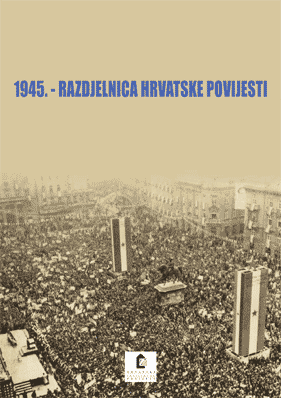Etiketa «ustaštva » kao izgovor za progon političkih protivnika u poslijeratnoj Hrvatskoj
The label of «ustašism » as an excuse for the oppresion of political opponents from postwar Croatia
Author(s): Mario Jareb
Subject(s): History, Political history, Recent History (1900 till today), Special Historiographies:, WW II and following years (1940 - 1949), History of Communism, Fascism, Nazism and WW II
Published by: Hrvatski institut za povijest
Summary/Abstract: May 1945 brought the victory of the Partisan movement and the establishment of a new communist totalitarianism on Croatian territory. The new regime decided categorically to settle accounts with anyone who could possibly create difficulties with the implementation of their intended revolutionary changes. Following the example of Soviet practice, Yugoslavian communists turned all means at their disposal to a massive settling of accounts with all their enemies. To the public they justified this as a necessary punishment of war crimes. Consequently they wanted to portray all their opponents in the worst possible way, without regard to their actual responsibility for events that transpired during the war. Communist propaganda aimed at fomenting hatred of designated enemies. Special attention was paid to those individuals and groups who could by no criteria be labelled Ustaša or Ustaša collaborators. In many cases this was the public tarnishing of potential opponents (The Croat Peasant Party and the Catholic Church). This was a rather widespread occurence, which for certain individuals and groups ordinarily had drastic consequences. If these types of practices were predominant in the immediate postwar period, they did not disappear altogether later on. Thus, in the case of the Franciscans of Široki Brijeg, there was an attempt to hide one≫s own crimes in accusations directed at others.
Book: 1945. - Razdjelnica hrvatske povijesti
- Page Range: 289-304
- Page Count: 16
- Publication Year: 2005
- Language: Croatian
- Content File-PDF

